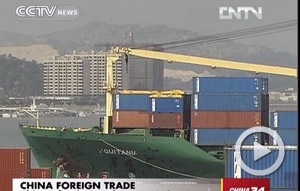Alibaba may be using 'negotiating ploy' with HK exchange: Professor
Updated: 2013-09-10 11:26
By Michael Barris in New York (China Daily)
|
||||||||
A published report that e-commerce giant Alibaba Group Holding will hold its much-anticipated $60 billion initial public offering in New York instead of Hong Kong is a "negotiating ploy" to increase pressure on the Hong Kong exchange, says a law and business professor at the University of Michigan.
"(Founder) Jack Ma and his counterparts at the exchange are clever negotiators," said Erik Gordon, who teaches at the University of Michigan's Ross School of Business and Michigan Law School in Ann Arbor, Michigan. "We may be treated to a bit of negotiation theater."
A spokesman from Alibaba's Hong Kong office told China Daily in an interview that the company "has still not set its IPO timetable, has not decided on the IPO listing venue and also has not appointed any IPO underwriter."
In its Monday editions, the Financial Times quoted people close to Alibaba as saying the company is ready to move the listing to New York even though it had been planning for months to list in Hong Kong, presenting the city – and China – with the possibility of losing one of the most eagerly anticipated listings since Facebook Inc's $16 billion Nasdaq Stock Market IPO last year.
Alibaba reportedly has been in discussions with the Hong Kong exchange's listing panel to establish a system by which Ma and other top executives could nominate most of the company's board and submit the proposed directors' slate to shareholders for a vote. The managers' goal is to retain voting power over Alibaba's strategic direction and culture. Alibaba maintains that its management needs to remain stable and independent to change business direction quickly in the face of rapid technological developments and to make long-term bets that could bring very large financial returns.
Alibaba is proposing this system, according to the report, because Hong Kong doesn't allow the dual-class structure favored by Facebook, Google Inc and other US-listed technology companies. In a dual-class voting system, a company issues two classes of shares with different voting rights, giving founders and management greater weight in shareholder votes.
If Hong Kong regulators fail to approve Alibaba's board-nomination request, it intends to switch the listing venue to New York, where such a corporate structure is allowed, the Financial Times reported. "The discussion is underway internally, we would like to be in Hong Kong, but if we can't land comfortably [on the board structure], New York remains a viable option," the newspaper quoted a person close to the situation.
The IPO would be one of the few Chinese listings on a US stock exchange in two years. Accounting scandals involving US-listed companies from China – combined with a dispute between US and Chinese regulators – caused the number of Chinese IPOs on the US stock market to plunge from a high of 41 in 2010, to 12 in 2011 to two last year. Just two companies have held IPOs so far this year – Beijing-based online retailer LightInTheBox Holding Co – and small-company lender China Commercial Credit Inc.
"The US equity market is built on trust, and many Chinese issuers have destroyed trust among investors," Timothy Keating, CEO of Keating Capital, a business development company that specializes in making pre-IPO investments, told China Daily in late August. "It will take a long time for this damage to be repaired, and rightfully so," he said.
Gordon said he doubted that shifting the Alibaba IPO venue to New York would have much effect on the outlook for US-listed Chinese IPOs. "It's not likely to create a flood of Chinese IPOs in the US because the US still has the strictest anti-fraud and disclosure standards, and the largest number of lawyers to sue companies," the business professor said. "In return for stronger shareholder democracy restrictions, companies that list in Hong Kong enjoy a less risky legal environment."
Were Hong Kong to lose the Alibaba offering, "there will be some loss of pride, but Alibaba will still be a Chinese company," Gordon said. "And the Hong Kong exchange will maintain its integrity as applying its rules uniformly, without bowing to pressure from a powerful company."
Gordon criticized what he said is Ma's desire to "go public and take public money but be allowed to operate as if the company is his private company". The only way Alibaba could make a Hong Kong IPO happen would be if Ma offered "a compromise that would allow the exchange to claim that shareholder democracy is sufficiently protected despite Mr. Ma retaining enough control to keep him happy," Gordon said. "If Mr. Ma is half as clever as he seems to be, he will find a way to get enough of what he needs while letting the exchange save face," he said. Including's Ma's 7.4 percent interest in Alibaba, the entire management team owns a combined 10.4 percent stake in the company. Japanese Internet and telecoms group Softbank Corp is the biggest shareholder with 36.7 percent. US Internet portal company Yahoo Inc owns a 24 percent stake.
First Shanghai Securities Chief Strategist Linus Yip said losing the Alibaba IPO would bring on a decline in the number and value of deals this year in Hong Kong, a city already suffering from a drop in IPO volume. After reigning as global IPO hub for several years, the city had $7.72 billion worth of deals in 2012, the lowest volume since 2008 global financial meltdown, according to Reuters data.
Contact the writer at michaelbarris@chinadailyusa.com
Oswald Chan in Hong Kong and Zhang Yuwei in New York contributed to this story.
Most Viewed
Editor's Picks

|

|

|

|

|

|
Today's Top News
AIDS is biggest killer among infectious diseases
China vaults to world's 3rd-largest investor
War could derail global recovery
China, US vow to enhance Asia-Pacific military ties
Assad warns US over strike
Energy is priority, leaders agree
Chinese premier urges education equality
Trending news across China
US Weekly

|

|














